This article was produced in partnership with Athletic Brewing, which encourages you to adventure without compromise.
Growing up in Vermont, Ryan Kempson spent most of his time outdoors, playing sports like basketball. Athleticism was always innate. After college, he stuck with an active lifestyle, passing his fitness knowledge onto others as a trainer. When he first decided to sign up for a Spartan Race with his brother, it served as a way to meet up, connect, and have some physical fun. Then he realized he had talent on the course. Fast forward a few years and this competitor still dominates the obstacle course racing scene. “The reason I still go after it is that it’s an adventure and a challenge,” he says.
While most of the courses Kempson runs span double-digit miles, the benefits of obstacle course racing goes beyond gaining endurance. “With obstacle course racing, we’re not really good at just one thing, but we’re pretty darn good at everything,” he says. “It forces you to address weaknesses, whether that’s carrying really heavy things, or climbing across monkey bars, or running on technical terrain. As a result, the training develops you into a pretty well-rounded athlete. You can’t focus all your training on one area or else you’re going to get left behind in a race.”
To train all aspects of his fitness, Kempson often turns to kettlebell training, kite surfing, and one major must-do: hill workouts.
The Benefits of Hill Workouts
First off, dashing up a mountain will get you stronger legs. “By running up and down a hill, you start developing this power in your lower body that translates into being able to propel yourself farther at a faster rate,” Kempson says. “It also breaks up the monotony of running in one plane of motion for so long.”
On the mental side, breaking up your workout by running hills and incorporating strength moves, like pushups and lunges, forces you to change paces and tires you out. Then you need the mental strength to do it all again. “It takes a little more focus and willpower to continue on,” Kempson says, comparing hill workouts to straight running. It teaches you to run when your legs are tired, too, which can offer a major benefit come race day or long-run day, when your legs feel heavy as you reach the end of the route.
How to Crush a Hill Workout
To train your legs to work in overtime when fatigued and incorporate some strength moves focused on pushing and pulling, Kempson offers a hill workout you should do outdoors once a week. Find an incline you can run up for at least 30 seconds and up to two minutes. Throughout the routine, you should work at a consistent effort—about a 6-8 on a scale of 10 for your rate of perceived exertion. “It should be hard, but sustainable, so you don’t need to take any rest,” Kempson says. “The idea is to keep moving forward, even though we have the tendency to want to take that break. But keep grinding along.”
Focus on form as you run, making sure to stand with tall, strong posture; pick up your feet, not just your knees, so you’re not shuffling. “Work on bounding up the hill—not doing short, choppy steps, but being powerful by lifting your feet, and driving your knees and hips” he says. “Practice being light on your feet to come back down, rather than just slamming your foot down and putting on the breaks with every single step.”
“The cool thing about hills is that they don’t lie to you—either you can get to the top or not,” Kempson says. If you can only do one round of this workout the first week, that’s OK; you’ll see your progress the more you stick with it. “And when you go back to your regular running, your legs will feel super strong,” Kempson adds.
Ryan Kempson’s Strength-Focused Hill Workout
Complete all the exercises straight through, without stopping. Once you complete 1 round, rest until fully recovered, and repeat 2-5 times.
- Run up hill (shown above)
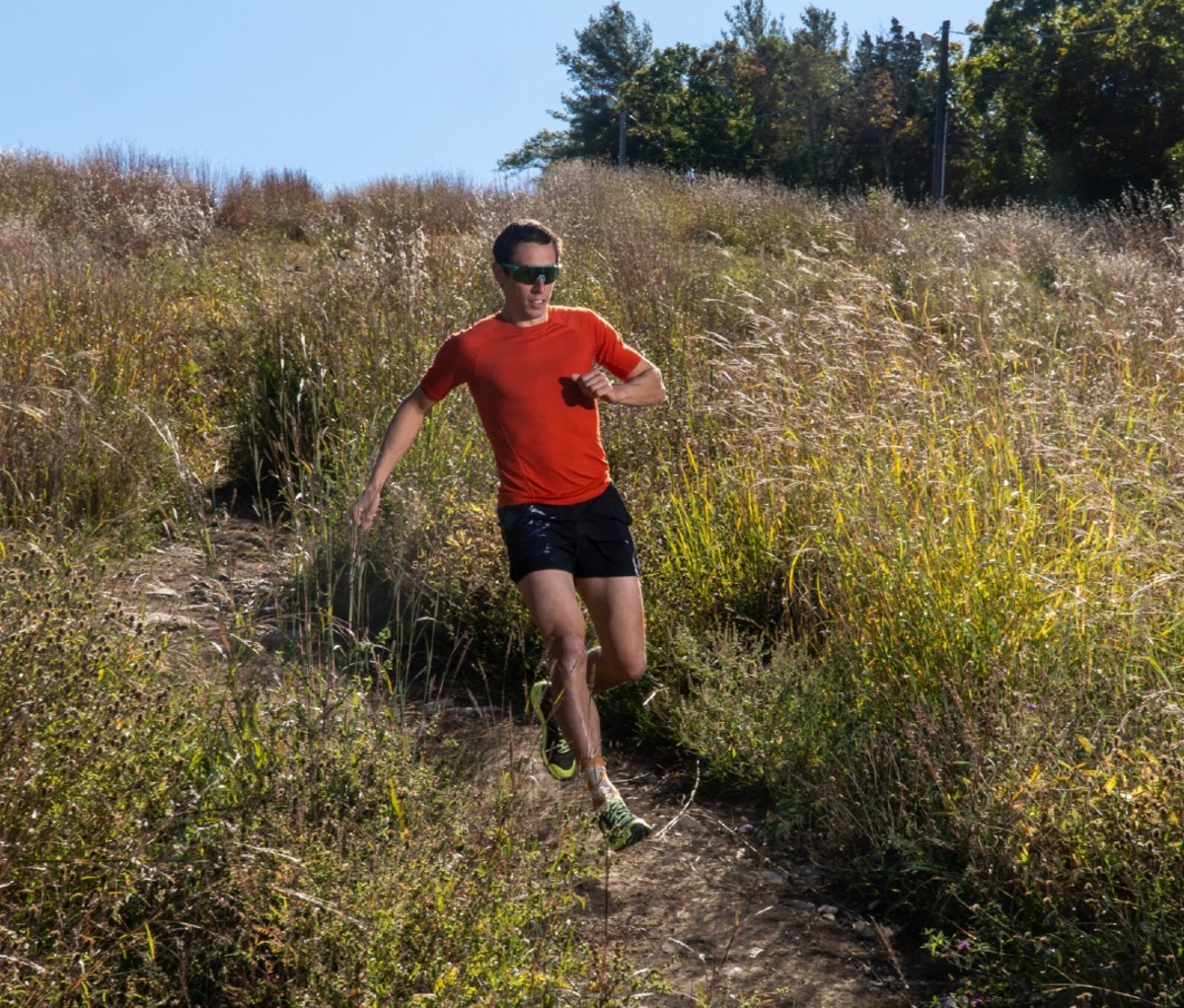
- Jog back down
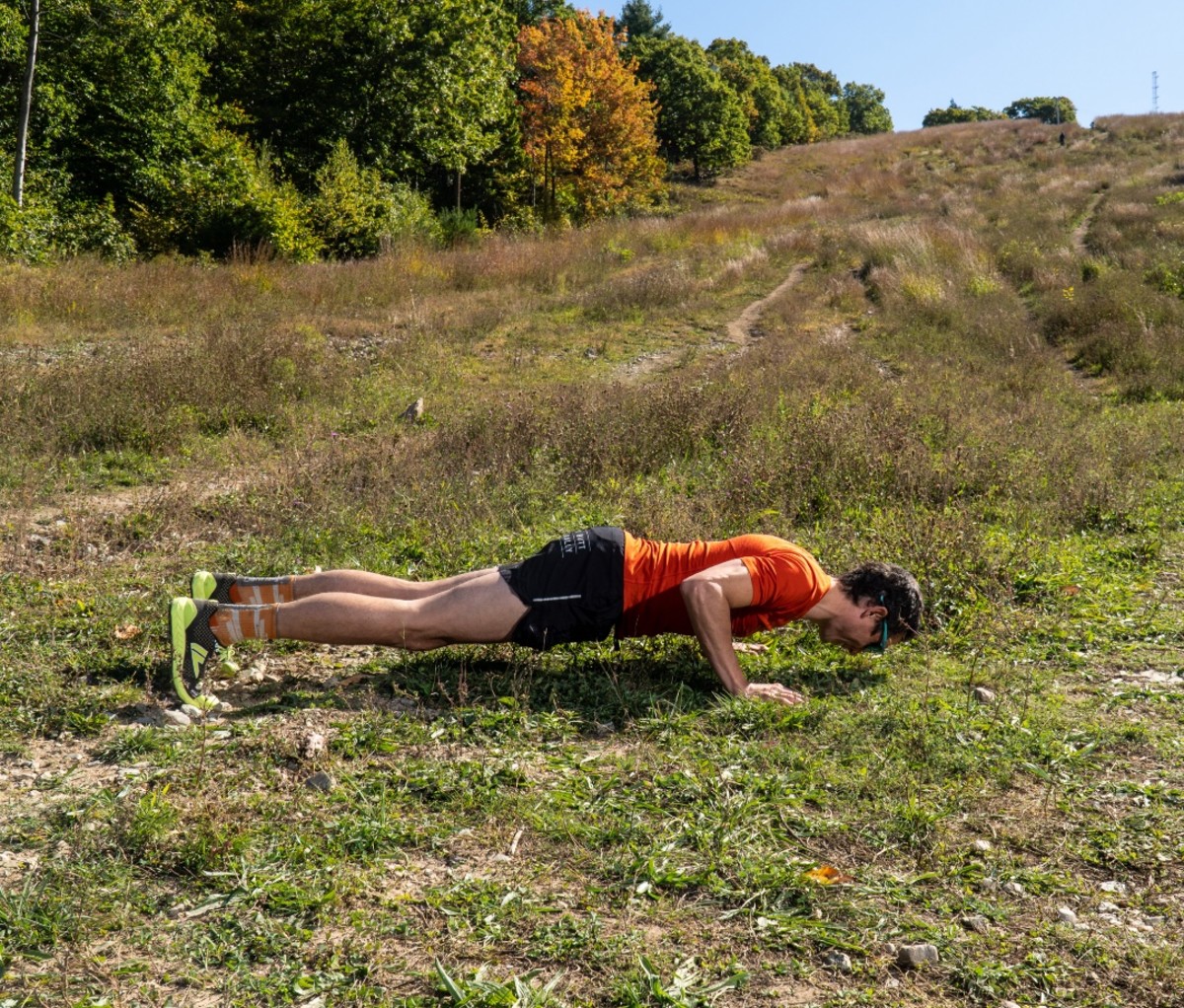
- Do 10 pushups
- Run up hill
- Jog back down

- Do 10-20 reverse lunges (with or without sandbag)
- Run up hill
- Jog back down
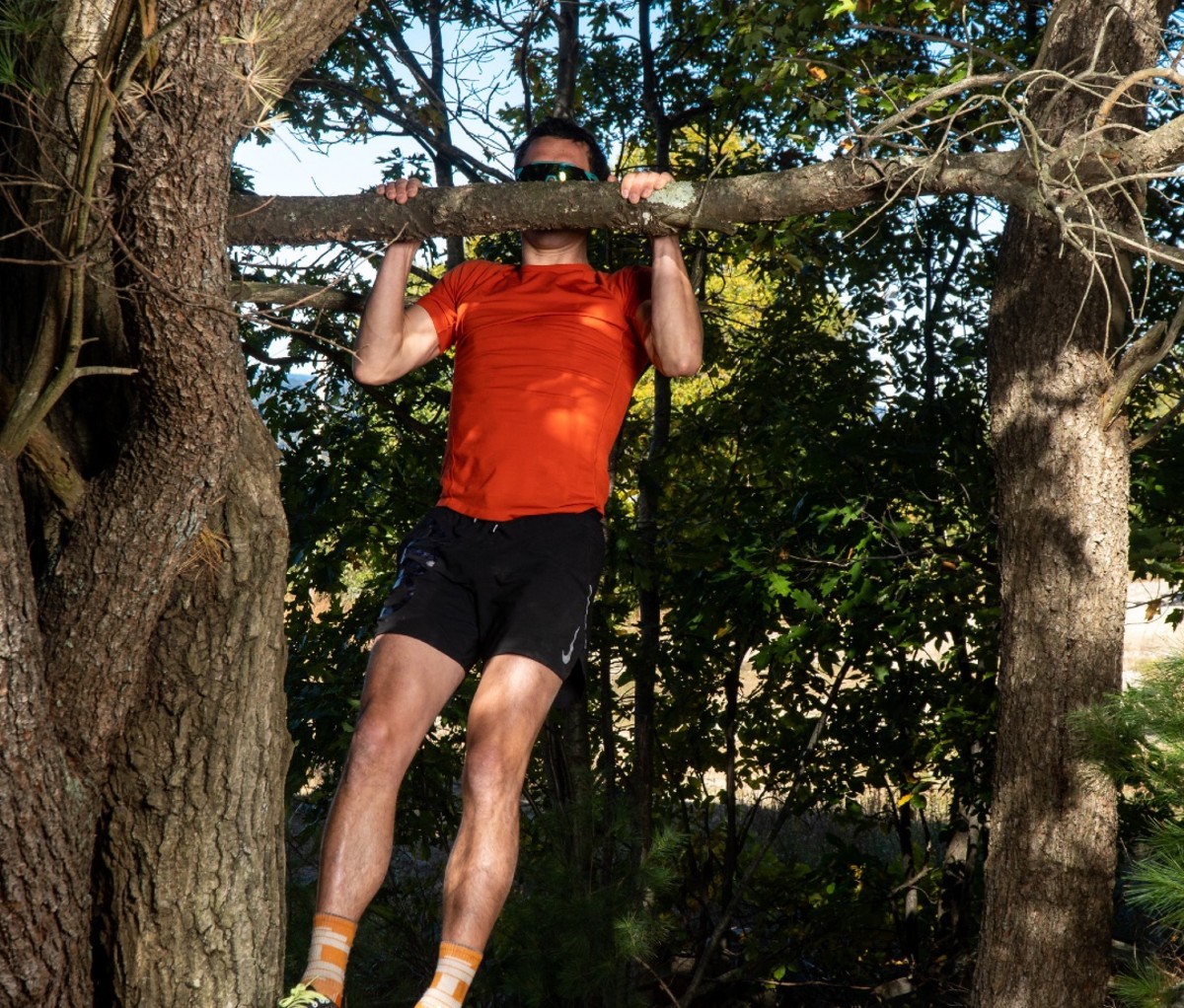
- Do 10 pullups (on a tree, jungle gym, or any ledge you can find to pull yourself up)
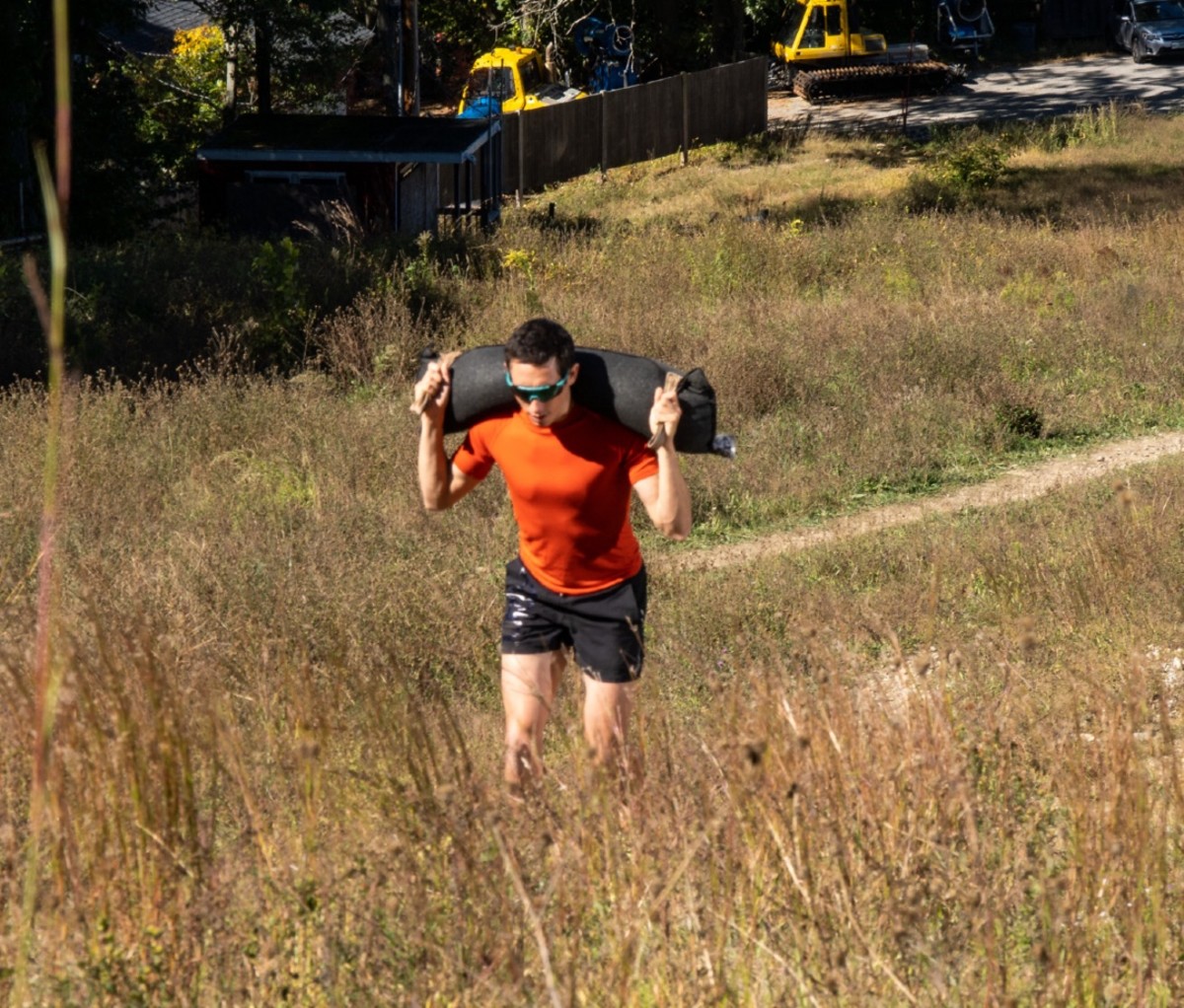
- Run up hill with a sandbag or light weight held across the shoulders or carry a backpack filled with water bottles
- Jog back down
- Finish with one sprint up the hill
- Jog back down
Make sure to recover properly: Drink plenty of water, replenish depleted electrolyte and glycogen stores, and get a good night’s rest.
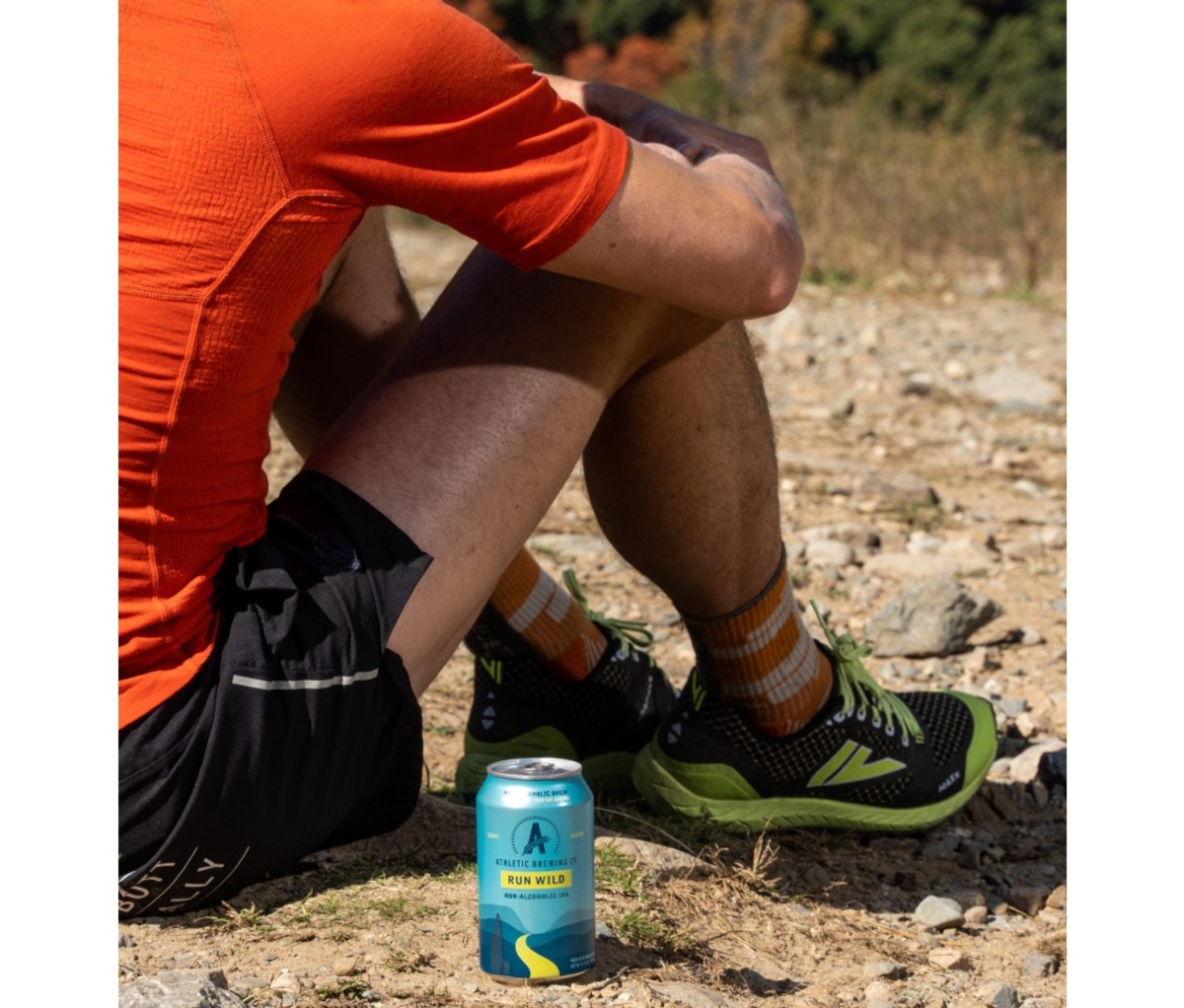
from Men's Journal https://ift.tt/34ldu1J



No comments:
Post a Comment